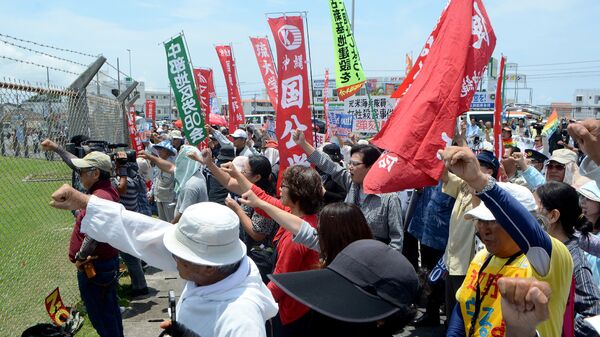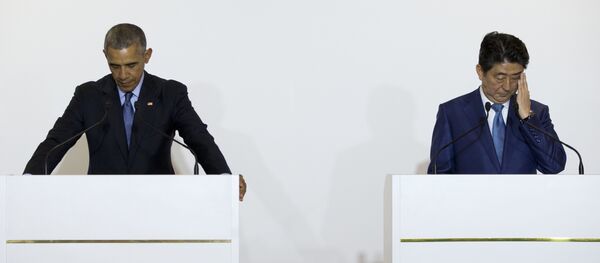Tens of thousands of residents took to the streets in Japan ahead of G7 Summit in protest over the latest case of alleged rape and murder of a 20-year-old Okinawan woman by a US Marine veteran, demanding the US troops to get out from the area.
Japanese Prime Minister Shinzo Abe expressed his "strong indignation" directly to President Obama on Wednesday during a face-to-face meeting about the rape and murder by the US Marine, as well as other crimes committed by American forces.
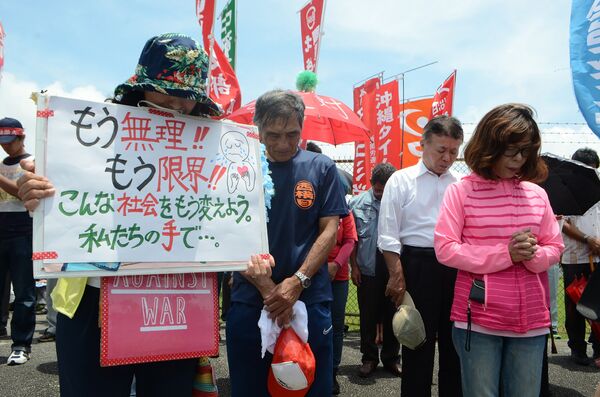
During a joint press conference, Abe said: "As Japanese Prime Minister, I protested sternly to President Obama over the recent incident in Okinawa and I feel strong indignation about the selfish and extremely mean crime."
However Russian expert on Japan Professor Anatoly Koshkin is convinced that these formal protests of the Japanese prime minister won’t eliminate the threat of crimes committed by the US servicemen on the Japanese territory.
“This is yet another outrageous crime committed by an American on the Japanese territory which has certainly sparked anger and indignation of the Japanese people, who, as the Japanese themselves say, are tired of living in a state of an unfinished war,” Koshkin told Radio Sputnik.
This mood is particularly high on Okinawa, where the residents’ lives are jeopardized even more than anywhere else, he added.
However, Koshkin says, these are half-measures.
The major move, which could solve the problem is a complete withdrawal of the US troops from Japan and Okinawa in particular, which is what the Okinawans are striving for.
The fact that this time the Japanese prime minister was forced to voice the protest personally is giving more weight to this protest. But the Japanese residents won’t be satisfied with such a formal form of complaint.
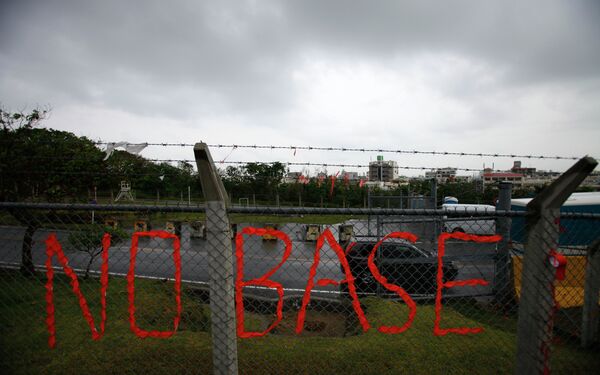
What makes the situation even worse is that the latest crime was committed right ahead of the G7 Summit. It can’t but have an impact on the attitude of the Japanese people and the country’s mass media towards the US president who has just arrived for the Summit.
The numerous crimes committed by the US servicemen on the Japanese territory throughout the years of their stay in the country, especially on its southern island of Okinawa, gave way to decisive protests not only against the US servicemen but against the US administration on the whole, the foreign policy expert noted.
He didn’t rule out that these crimes could be used by opposition, which is teaming up ahead of the upcoming parliamentary elections in the country, to try to liberate Japan from the American strangle and to put an end to its position of an American protectorate.
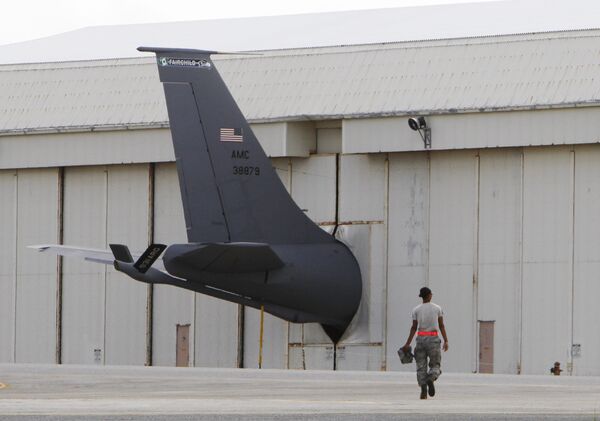
However the expert noted that Prime Minister Abe is pursuing the course of strengthening the Americano-Japanese military union.
“Some are saying that Abe visited Russia’s city of Sochi to meet with President Putin despite the US ban,” Koshkin reminded.
“This is not so,” he said. “The issue was agreed upon at the meeting between Abe and Obama during the Nuclear Security Summit in the US earlier this year.”
This only shows that all the diplomatic protests are formal in their nature, he added.
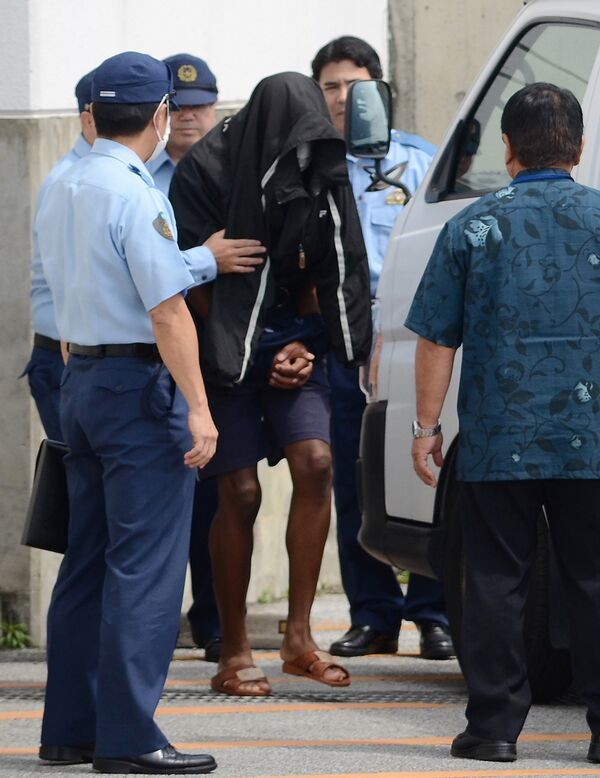
In reality, Abe and his Liberal Democratic Party of Japan will continue pursuing the course on the stronger linkage of Japanese military and strategic programs with the US plans.
This means that the US military bases in Japan will be kept and, most probably, even strengthened. Which, in turn, means that there will be more crimes committed by the US servicemen against ordinary Japanese, the expert concluded.
However the expert noted that the new generation of Japanese residents less and less believes in the need of the US presence in the country and the cited threats it is fighting against, so if the oppositions unites its joint efforts, it will be able one day to gain certain results.

